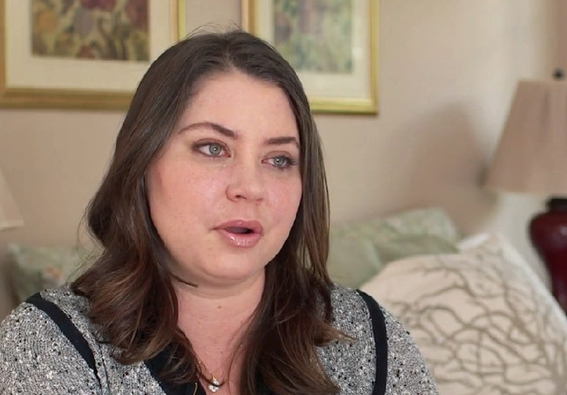Assisted suicide activists take on a discriminatory attitude toward people with disabilities in their quest to legalize the deadly procedure.
On the surface, their arguments for assisted suicide may appear compassionate. They often claim that people who are dying and in severe pain should be able to choose assisted suicide and receive a dose of lethal drugs from their doctor to end their lives.
However, research indicates that pain is not the reason why most people choose doctor-prescribed suicide. Kaiser Health News reports statistics from Oregon and Washington, where it’s legal, show that pain is one of least selected reasons why patients choose to request the suicide drugs.
The number one reason chosen by 90-plus percent of patients in both states was “loss of autonomy,” according to the report. People also were afraid of being a burden and were concerned about not being able to participate in the same activities that they once did, according to the statistics.
Cassy Fiano, a pro-life blogger and mother of a child with Down syndrome, pointed out that “most patients who undergo assisted suicide don’t use it to avoid pain — they use it to avoid disability.”
Dan Diaz, the widower of young cancer victim Brittany Maynard who committed doctor-prescribed suicide in 2014, inadvertently admitted as much in an interview with Kaiser.
“If I find myself in a situation where I can’t go to the bathroom on my own, where someone has to change my diapers, where I can’t feed myself, where I can’t care for the people around me, where other people have to move me around to keep me from having bed sores, I would then submit, is that really living?” Diaz questioned.
Click here to sign up for pro-life news alerts from LifeNews.com
Joni Eareckson Tada almost certainly would disagree. Tada became a quadriplegic when she was just 17 years old after a tragic diving accident. At different points in her life, she has required a lot of the same care that Diaz described. Yet, she has adapted and learned to live with her disabilities. Tada now is a celebrated artist, author, speaker and disability rights advocate. Before Maynard died, Tada even wrote a letter pleading with the young woman not to kill herself.
“But if I could park my wheelchair beside her, I would tell her how the love of Jesus has sustained me through my chronic pain, quadriplegia and cancer,” Tada said in 2014. “… Life is the most irreplaceable and fundamental condition of the human experience, and I implore you to take a long, hard look at the consequences of your decision which is so fatal, and worst of all, so final.”
Fiano also took issue with Diaz’s claims. Writing for Live Action News, she said:
The thousands of disabled Americans who live life every day under those exact conditions would say that yes, it is still living. They are still living valuable lives, and arguing that people should be allowed to kill themselves lest they have to wear adult diapers, be in a wheelchair, or have someone take care of their needs is not only dangerous — it devalues the lives of people who are severely ill or disabled, and could put pressure on them to kill themselves — a view some hold as ableist and offensive.
This is the problem with assisted suicide. The claim is always that it will only be legalized for the terminally ill, but like we’ve seen in Europe, it never stays that way. Soon, people who are elderly, disabled, poor, mentally ill… they all become fair game as well.
British actress Liz Carr who is wheelchair-bound also has been a strong advocate against the deadly measure. In a column published at LifeNews in September, Carr pointed out how society has embraced a double standard with suicide.
“If I said I wanted to die, the press, celebrities and the public would support my choice, seeing it as rational and understandable,” Carr wrote. “.. Yet when a healthy, non-disabled person wants to kill themself it’s seen as a tragedy, and support and prevention tools are provided.”
Pro-lifers agree. Human beings are not valuable because of what they can do but because of who they are. To claim otherwise takes our society down a dangerous road where human life is no longer valued or protected.








